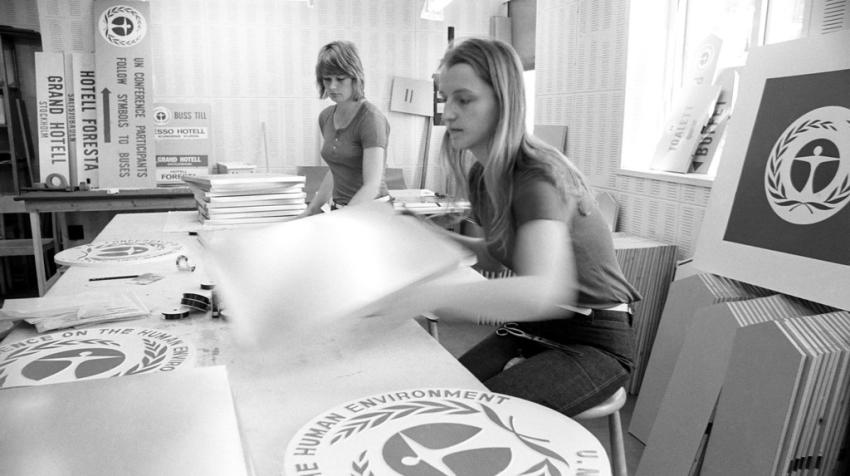Launched in 2023, the Flagship Initiative of the Office for the Coordination of Humanitarian Affairs (OCHA) is a radical shift in humanitarian coordination and response.
It aims to deliver solutions and build resilience by systematically engaging communities in decision-making, empowering local partners, and putting community priorities – and not sectors – at the heart of humanitarian programming.
Reshaping the humanitarian response
“The initiative stems from the need to reshape humanitarian response as we know it,” Sofie Grundin, Humanitarian Affairs Officer in OCHA’s Policy Branch, explains.
“Humanitarian emergencies are more frequent, complex, and protracted, but the operating environment is becoming more resource-constrained, uncertain, and complex, and the current standardized approach to coordination and response often does not give sufficient space to empowering local actors, systems, and people,” she says.
“This, in turn, does not foster the long-term resilience of crisis-affected communities nor help communities move beyond dependence on humanitarian assistance. And yet, in times of increased humanitarian need and reduced humanitarian resources, resilient communities, better prepared to overcome crises, will be essential to sustaining humanitarian response in the future.”
Colombia, Niger, the Philippines, and South Sudan were chosen to pilot the initiative. Since mid-2023, these OCHA country teams have engaged stakeholders in the humanitarian system, including donors, governments, partners, and communities, to promote the shift towards a community-centric coordination and response structure.
Ms. Grundin characterizes the Flagship Initiative as pivoting around 5 core pillars:
-
Community Engagement – for a more systematic participatory community engagement
-
Decentralized Coordination - to foster a more robust collaboration at the local level
-
Empowering Local Initiatives – recognizing and harnessing the value of local knowledge and capacities
-
Direct Funding - to channel funding to local actors
-
Rethinking Planning and Programming - to decrease bureaucracy and focus on delivering solutions to community priorities
Understand and adapt
The Flagship Initiative is an exploratory process; some approaches will work, others will not.
The aim is to understand why and how approaches can be replicated and brought to scale. A learning and evaluation function has been engaged to support pilot countries to learn from setbacks, identify promising new approaches, and develop them for replication.
Resources:




